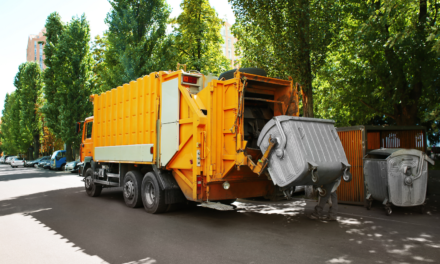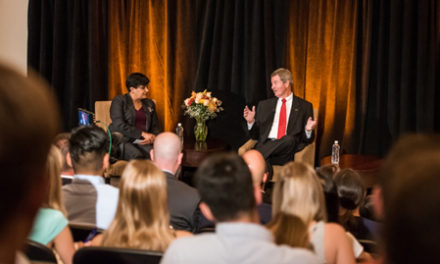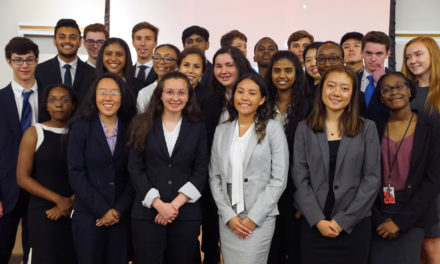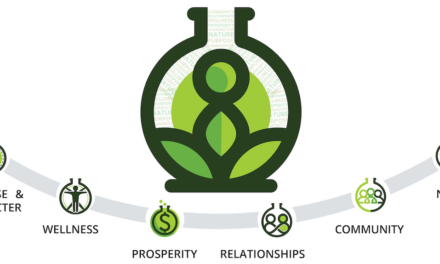A SURE Success
UMD Undergrad Researchers Exhibit Curiosity, Determination and Open-mindedness
A SURE Success: UMD Undergrads Exhibit Curiosity, Determination and Open-mindedness
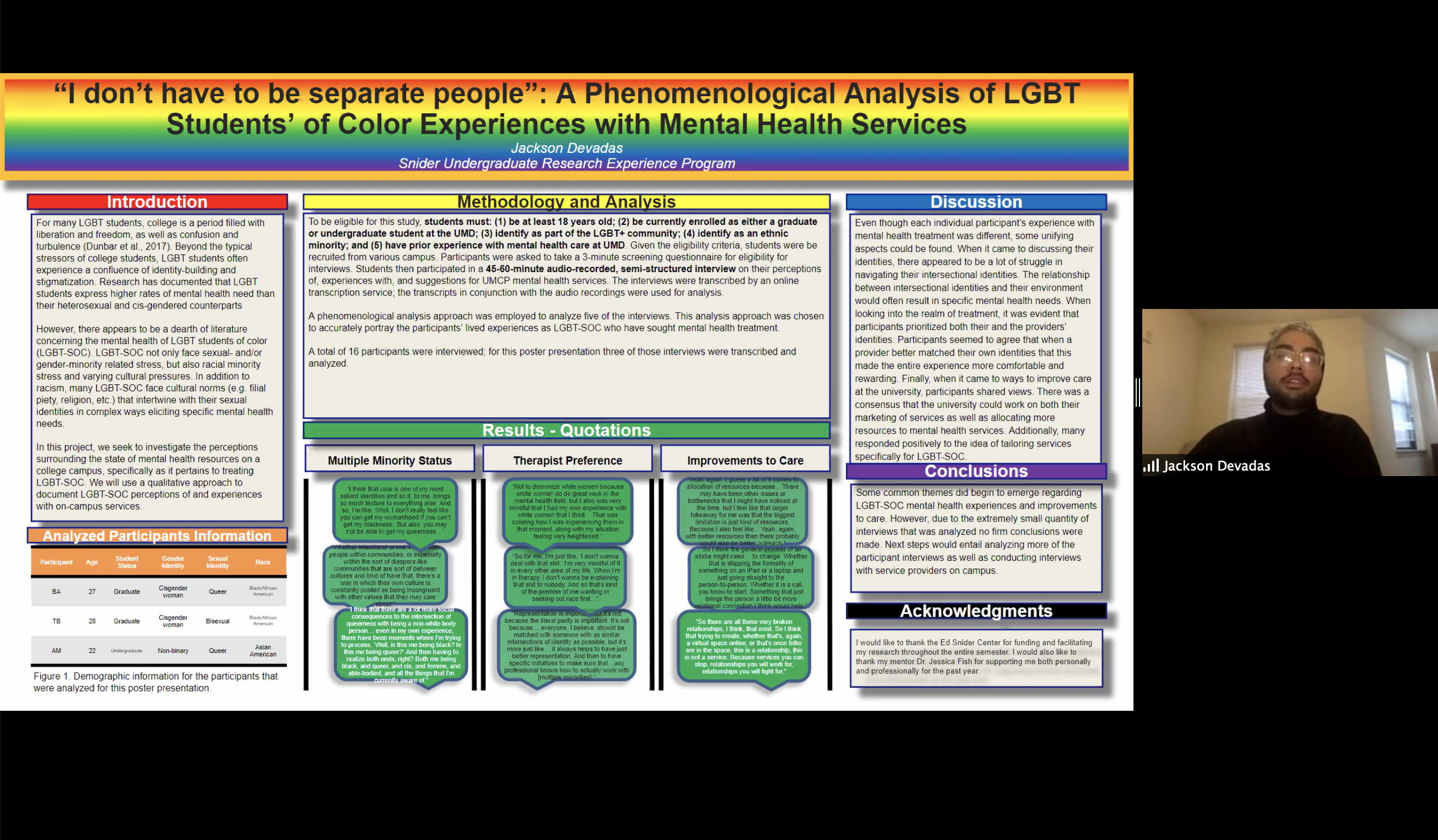
The Ed Snider Center for Enterprise and Markets recently wrapped up a six-month program designed to give UMD students a true research experience. The Snider Undergraduate Research Program (SURE), in its 5th year, provides an opportunity to deeply investigate a subject area under the mentorship of a faculty member. SURE fellows not only learn research methodologies, but also make contributions to a variety of disciplines including: computer science, business, public policy, and behavioral and social sciences. Also, they’re encouraged “to challenge their own underlying assumptions,” explains Dr. Rajshree Agarwal, Executive Director of the Ed Snider Center.
This year’s cohort seamlessly adjusted to a new way of presenting their papers – by videoconference. In the past, SURE fellows have presented their research posters along with other students from across the UMD campus at The Undergraduate Research Fair held in the Stamp Union Grand Ballroom. Instead, when the 2020 SURE fellows presented their research virtually, they made the most of this opportunity to address a small group of faculty, staff, and students.
The SURE program begins with students, under the tutelage of Dr. Agarwal, choosing their individual research topics. Once a topic is agreed upon, a faculty mentor — an expert in the participant’s research subject area — is assigned to each student. This faculty mentor is part-advisor and part-champion. Most mentors find that the undergraduate SURE Fellows are more than ready for the task at hand: “The experience was more like supervising a graduate student than I expected it to be,” shared Bennet Zelner, UMD Associate Professor in Logistics Business and Public Policy.
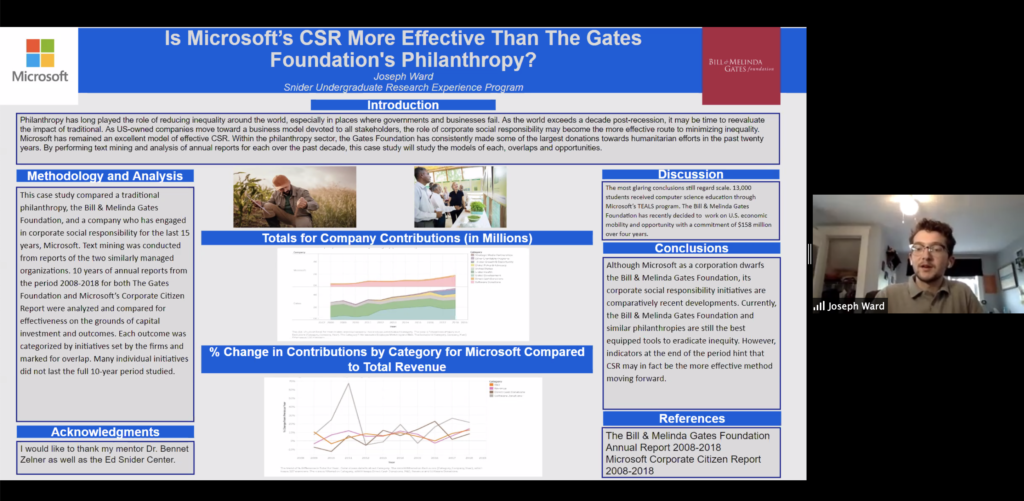 Dr. Zelner was Joseph Ward’s faculty mentor. Ward, a rising junior with a double major in International Business, and Operations Management & Business Analytics explored the effectiveness of a corporation’s social responsibility campaigns (in this case, Microsoft) compared with a dedicated foundation for philanthropy (in this case, The Gates Foundation). In his study, Ward found that philanthropical foundations are better equipped for eradicating inequity, but that this might be because the notion of Corporate Social Responsibility (CSR) is fairly new and its effectiveness may improve over time.
Dr. Zelner was Joseph Ward’s faculty mentor. Ward, a rising junior with a double major in International Business, and Operations Management & Business Analytics explored the effectiveness of a corporation’s social responsibility campaigns (in this case, Microsoft) compared with a dedicated foundation for philanthropy (in this case, The Gates Foundation). In his study, Ward found that philanthropical foundations are better equipped for eradicating inequity, but that this might be because the notion of Corporate Social Responsibility (CSR) is fairly new and its effectiveness may improve over time.
Efia Ofosu-Ntiamoah, a senior Accounting major at Maryland Smith, examined the transfer student experience in her research entitled Transfer Shock: An Inside Look at How Student Support Can Combat its Effects.” Ofosu-Ntiamoah looked at how well the university supports transfer students from diverse backgrounds in their first year when transfer shock is most often an issue.
Nitin Reddy, a freshman Economics major, examined economic policy uncertainty and its effect on exchange rates. Ashley Deng, also a freshman, but a dual Neurobiology and Physiology major, examined the relationship between on-campus sex education programs and safe sexual heath practices.
Jackson Devadas, also a dual Neurobiology and Physiology major but with a Statistics minor, researched mental health treatment outcomes within marginalized communities. Devadas studied LGBT students of color’s experiences with mental health services with an eye to what can be improved upon in the future.
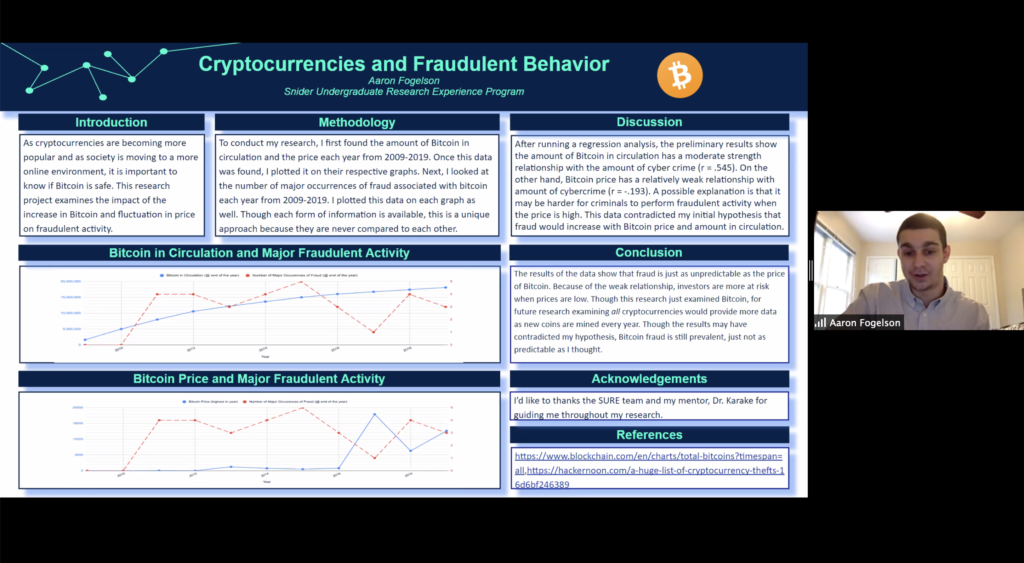 Aaron Fogelson, a sophomore Finance and Information Systems double major, examined how crypto-currencies impact fraud and cyber-crime. While Zachary Bee, a senior Finance major, looked at issues in foreign equity offerings in developing countries.
Aaron Fogelson, a sophomore Finance and Information Systems double major, examined how crypto-currencies impact fraud and cyber-crime. While Zachary Bee, a senior Finance major, looked at issues in foreign equity offerings in developing countries.
“This year’s fellows have faced tremendous challenges, not only in their research procedures, but also in every facet of their lives due to COVID-19. Despite these issues, they persevered, worked hard, and delivered amazing content,” explained Caitlin Stiffler, SURE Program Coordinator. Stiffler also went on to say that “SURE’s student co-directors for this year, Kunal Harmalkar and Liuxin Yan, have implemented fantastic policies and directly impacted the success of this year’s cohort.”
The success of SURE relies on students to be motivated to contribute to the collective knowledge pool, and exhibit determination and open-mindedness. The SELF 2020 cohort did that and more.
Stevi Calandra is a writer, producer and content creator whose work has appeared on Discovery and National Geographic Channels.

